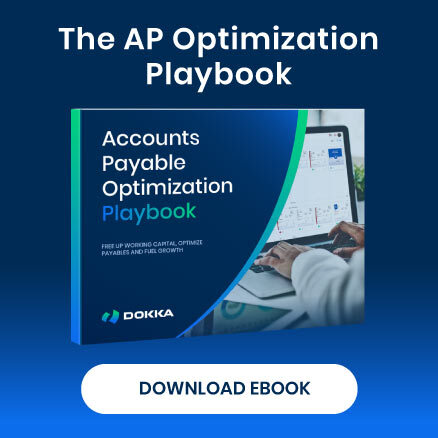Until just a few years ago, artificial intelligence was a concept that seemed far-fetched and reserved only for science fiction movies. Then, almost suddenly, a transformative boom occurred.
AI has evolved from a futuristic idea into a driving force of change across industries. Everyone is talking about it, but how can it be defined?
At its core, AI refers to the simulation of human intelligence in machines, enabling them to perform tasks such as learning, reasoning, problem-solving, and decision-making.
It is the technology that empowers systems to analyze vast datasets, identify patterns, and make informed decisions at speeds and scales far beyond human capability.
Naturally, these features have proven invaluable in accounting and finance.
As we step into 2026, AI is transforming the way businesses handle financial processes. It has become a key tool in accounting automation, merging precision with efficiency.
Key Takeaways:
- AI automates repetitive tasks such as bookkeeping, invoice processing, and tax preparation, reducing human error and saving time.
- AI leverages predictive analytics to deliver insights for financial forecasting, strategic planning, and scenario analysis, helping businesses make data-driven decisions and adapt to changing conditions.
- Analyzing large datasets in real-time, AI identifies irregularities and potential fraud, supporting proactive risk management and financial security.
- AI tools continuously monitor transactions and regulations, ensuring adherence to global standards and lowering compliance risks through automated, audit-ready reporting.
- AI is reshaping accounting roles, shifting the focus from number-crunching to analytical and advisory functions.
- Accountants can future-proof their careers by adopting AI-driven tools, data analytics, and financial technologies, becoming indispensable as strategic advisors.
What Role Does AI Play in Accounting?
The integration of AI into accounting processes has revolutionized traditional practices. In the past, bookkeeping required manually recording and categorizing financial transactions, which was a time-consuming and error-prone process.
Today, AI-powered software automates much of this work, reducing human error and allowing accountants to focus on more strategic and impactful tasks.
AI is more than a technological trend, it is a transformative force redefining how businesses manage their finances. Combining advanced algorithms with powerful data-processing capabilities, AI has become an indispensable tool for finance professionals.
How Does AI Help Accountants?
- Enhanced Decision-Making
AI goes beyond data processing to enable smarter decisions. Predictive analytics help forecast financial outcomes, identify trends, and guide strategic planning.
For example, AI can analyze historical data and current market conditions to predict cash flow patterns or evaluate new investments.
- Automation of Repetitive Tasks
Routine processes such as data entry, bank reconciliations, and invoice processing can now be automated with speed and accuracy. This saves time and allows accountants to focus on client advising and business strategy.
- Ensuring Compliance and Accuracy
AI continuously monitors transactions for compliance, detects anomalies, and generates audit-ready reports. It can also cross-reference data against standards such as GDPR, IFRS, and local tax codes, reducing risk and promoting transparency.
- Risk Management
AI processes large datasets to detect potential fraud or financial risks. Machine learning can identify unusual patterns, like duplicate payments or large withdrawals, alerting finance teams before issues escalate.
- Personalized Client Services
AI enables accountants to offer tailored advice by analyzing a client’s financial history, preferences, and goals. This allows for actionable insights and strategies beyond standard reporting.
12 Ways Accountants Can Leverage AI in 2026
AI is transforming accounting and finance into more agile, efficient, and insightful disciplines.
Let’s explore the wide range of uses that AI offers in this field:
- Fraud Detection
- Financial Forecasting
- Auditing
- AP and AR Automation
- Tax Preparation and Compliance
- Expense Management
- Real-Time Reporting
- Strategic Planning
- Vendor Management
- Corporate Performance Management (CPM)
- Employee Expense Reimbursement
- ESG Reporting
Fraud remains one of the most costly risks businesses face today, causing direct financial losses but also long-term reputational damage. The complexity of fraudulent activities has evolved, making it difficult for traditional methods to keep pace.
AI is transforming fraud detection by analyzing large volumes of financial data in real time, identifying patterns, and spotting anomalies that would be nearly impossible for humans to detect manually.
- Machine learning: AI learns normal transaction patterns across business activities. Any unusual behavior, such as unexpected transaction amounts, sudden spikes, or unauthorized logins, can be flagged as potentially fraudulent.
- Proactive alerts: AI monitors transactions in real time and immediately notifies the right team when suspicious activity occurs, helping prevent fraud before it grows.
Effective financial forecasting is crucial for making informed business decisions, but it requires analyzing large amounts of data from various sources, including market trends, economic indicators, and internal financial records.
AI improves forecasting by increasing accuracy, providing real-time insights into financial performance, and helping businesses respond quickly to market changes and uncertainties.
Integrating AI into financial forecasting and budgeting allows organizations to better understand their financial trajectory, make smarter decisions, and stay competitive.
- Dynamic budgeting: AI creates adaptive budgets that update in real time, responding to market shifts, unexpected costs, or operational changes.
- Scenario analysis: AI simulates different scenarios, showing how decisions or market changes may affect outcomes.
- Demand prediction: AI forecasts future demand by analyzing sales history, market trends, and external factors, helping optimize inventory, reduce stock issues, and improve customer satisfaction.
Auditing, traditionally a manual and time-intensive process, has been dramatically transformed by AI’s ability to automate data analysis and detect anomalies with greater speed and precision.
AI is reshaping the audit process by providing thorough checks, enhancing compliance, and delivering real-time insights in far less time than manual methods.
It streamlines auditing and also improves accuracy and effectiveness, making audits more reliable and less resource-intensive.
- Automated data analysis: AI can quickly analyze large volumes of financial data, spotting errors or unusual patterns so auditors can focus on higher-level analysis.
- Continuous auditing: AI enables real-time auditing, keeping financial records up to date and helping prevent costly errors or compliance issues.
- Natural language processing (NLP): AI can review contracts and text-heavy documents to identify risks, obligations, or red flags hidden in the fine print.
- Advanced risk detection: AI analyzes historical data to spot emerging risks and operational issues before they escalate.
- Improved audit sampling: AI can review entire datasets instead of just samples, increasing audit accuracy.
AI significantly enhances the management of accounts payable (AP) and accounts receivable (AR), optimizing the entire process to ensure smoother cash flow, reduce errors, and speed up financial operations.
Automating routine tasks frees up valuable time for finance teams, allowing them to focus on higher-level strategic activities. These capabilities streamline processes, improve decision-making, boost financial efficiency, and provide a competitive edge for businesses.
- Invoice processing: AI extracts invoice data, matches it with purchase orders or contracts, and manages approvals and payments, reducing manual entry, errors, and invoice processing time.
- Payment predictability: AI analyzes past payment patterns to forecast when customers are likely to pay, helping businesses manage cash flow, optimize working capital, and plan investments.
- Dispute resolution: AI identifies billing errors and mismatches, flags them for review, and can send reminders or facilitate communication, speeding up dispute resolution and maintaining customer relationships.
Tax preparation and compliance can be complex, with frequent changes to regulations, intricate tax codes, and numerous potential deductions. As businesses work to follow tax laws while minimizing liabilities, AI simplifies the process with efficient, automated solutions.
Leveraging AI allows organizations to stay ahead of changing regulations, reduce the risk of costly errors, and make data-driven decisions to optimize tax strategies and outcomes.
- Real-time updates: AI keeps track of the latest tax laws and regulations automatically.
- Error reduction: Automated calculations lower the risk of mistakes in deductions, credits, and liabilities.
- Personalized strategies: AI analyzes financial data to identify deductions and credits specific to the business.
- Scenario planning: AI simulates the impact of different financial decisions on taxes.
Managing business expenses effectively is critical for maintaining healthy cash flow and ensuring that financial resources are used efficiently.
AI transforms expense management by automating tasks, improving accuracy, and providing insights into spending behaviors.
With AI tools, businesses can track and manage expenses more precisely while gaining a clearer understanding of where money is being spent and how to optimize it.
AI allows organizations to control expenses fully while reducing the risks of manual oversight.
- Automated categorization: AI software classifies expenses automatically, ensuring all transactions are properly recorded. Finance teams can quickly generate accurate reports to support better decision-making.
- Policy violation detection: AI identifies expenses that fall outside approved company guidelines, such as excessive travel costs or unapproved purchases.
- Spending insights: AI analyzes patterns over time to highlight areas of overspending and recommend cost-saving measures, like renegotiating contracts or consolidating purchases.
Traditional financial reporting often involves delays, manual input, and periodic updates, which can lead to outdated or inaccurate insights. This slows decision-making and limits a company’s ability to respond quickly to changing circumstances.
AI is transforming financial reporting by enabling real-time, dynamic insights that support faster, data-driven decisions.
- Interactive dashboards: Provide real-time views of financial performance, allowing stakeholders to track metrics, spot trends, and identify issues quickly.
- Narrative reporting: Automatically generates clear summaries and explanations of financial data, making reports easier to understand and act on.
- Custom metrics: Tracks specific KPIs tailored to a company’s goals, giving focused insights on areas like cash flow, profitability, or customer acquisition costs.
AI enhances strategic planning by providing data-driven insights that improve the accuracy and efficiency of high-level decision-making.
Strong strategic planning helps businesses align financial strategies with organizational goals, navigate uncertainty, and drive long-term growth.
- Mergers and acquisitions (M&A): AI analyzes financial records, market conditions, and potential synergies to assess deal viability, forecast performance, and identify hidden risks or opportunities.
- Capital allocation: AI evaluates real-time performance data, market conditions, and historical trends to suggest where to invest resources, ensuring funds go to the most promising opportunities.
- Scenario forecasting: AI can simulate different business scenarios to predict outcomes, helping companies see potential risks and rewards before making decisions.
AI plays a key role in streamlining the financial aspects of vendor management and supply chain operations, leading to better cost control, efficiency, and decision-making across the entire supply chain.
Automating processes and providing deeper insights allows organizations to reduce operational risks and improve their overall supply chain strategy.
- Dynamic pricing: AI analyzes market trends, vendor pricing, and historical data to help businesses secure better deals and optimize costs.
- Contract monitoring: AI uses natural language processing (NLP) to review contracts, flagging discrepancies or risks to prevent legal issues and renegotiations.
- Inventory optimization: AI forecasts demand by analyzing data and trends, helping businesses maintain optimal stock, reduce overstock or shortages, and improve supply chain efficiency.
AI-powered Corporate Performance Management (CPM) tools are revolutionizing how businesses track financial health and align operations with strategic goals.
These tools provide deeper insights into performance metrics, enabling better decision-making and greater operational efficiency.
- Goal tracking: AI monitors progress toward financial goals and analyzes key performance indicators in real time, helping organizations stay on track and adjust quickly when needed.
- Resource optimization: AI assesses how resources are allocated and used, highlights inefficiencies, and provides recommendations to improve productivity, reduce waste, and maximize resource use.
- Board-level reporting: AI generates clear, concise, and visually engaging reports that simplify complex financial data, enabling executives to assess performance and make strategic decisions faster.
Managing employee expenses and reimbursements can be time-consuming and manual, often requiring multiple approvals and extensive paperwork.
AI is transforming this process, making it faster, more accurate, and efficient, so employees are reimbursed promptly and in line with company policies.
- Expense categorization: AI sorts receipts and expenses automatically, reducing manual data entry, errors, and time spent for both employees and finance teams.
- Faster reimbursements: AI speeds up approvals and processing, helping employees receive reimbursements quickly.
As businesses face growing pressure to demonstrate their commitment to sustainability and ethical practices, AI plays a pivotal role in streamlining and enhancing Environmental, Social, and Governance (ESG) reporting.
AI tools enable organizations to efficiently track, measure, and report ESG performance, align with regulatory requirements, and meet increasing public expectations for corporate responsibility.
- Carbon footprint tracking: AI analyzes operational data, supply chains, and energy use to calculate and monitor carbon emissions. Organizations can report environmental impact more accurately and implement strategies to reduce emissions and support sustainability goals.
- Diversity and inclusion metrics: AI-powered analytics assess workforce data to measure diversity and inclusion efforts and identify areas for improvement.
Will AI replace accountants?
The question often sparks debate, but the simple answer is no.
AI is a powerful tool, not a substitute for human intelligence. It excels at processing data and automating repetitive tasks, but it cannot replicate the contextual understanding, ethical judgment, or personal engagement accountants bring to their work.
Tasks such as interpreting complex financial situations, negotiating with clients, and providing strategic advice require emotional intelligence, creativity, and critical thinking, which remain uniquely human.
Rather than replacing accountants, AI is reshaping the profession. The focus is shifting away from routine number crunching toward analytical and advisory work. Accountants who adopt AI tools are better positioned to deliver insights and support business growth.
The change also creates opportunities for professional development.
As AI becomes more embedded in accounting, professionals can strengthen their skills in AI-driven tools, data analytics, and emerging financial technologies. Many organizations are investing in training to help teams remain competitive and future-ready.
The Future of Accounting Is AI-Powered
As we’ve seen throughout this guide, AI is no longer an emerging trend, but the foundation of how modern finance teams operate. It is reshaping workflows, elevating the role of accountants, and enabling finance leaders to move faster with greater confidence.
The true value of AI does not come from understanding its potential, but from applying it effectively.
DOKKA was designed specifically for finance teams ready to put AI to work.
DOKKA automates accounts payable processes end-to-end, eliminating manual data entry, accelerating invoice processing, ensuring compliance, and providing real-time visibility into cash flow, all while seamlessly integrating with existing ERP systems.
Instead of chasing invoices and approvals, your team can focus on higher-value financial analysis and strategic decision-making.
AI is redefining accounting in 2026 and beyond. The question is no longer if you should adopt it, but how fast you can do so.
Book a demo with DOKKA today and see how AI-powered AP and financial close automation can transform your operations.
















